What Are the 5 Worst Foods for Memory? You Might Be Eating Them
Medically reviewed by our experts
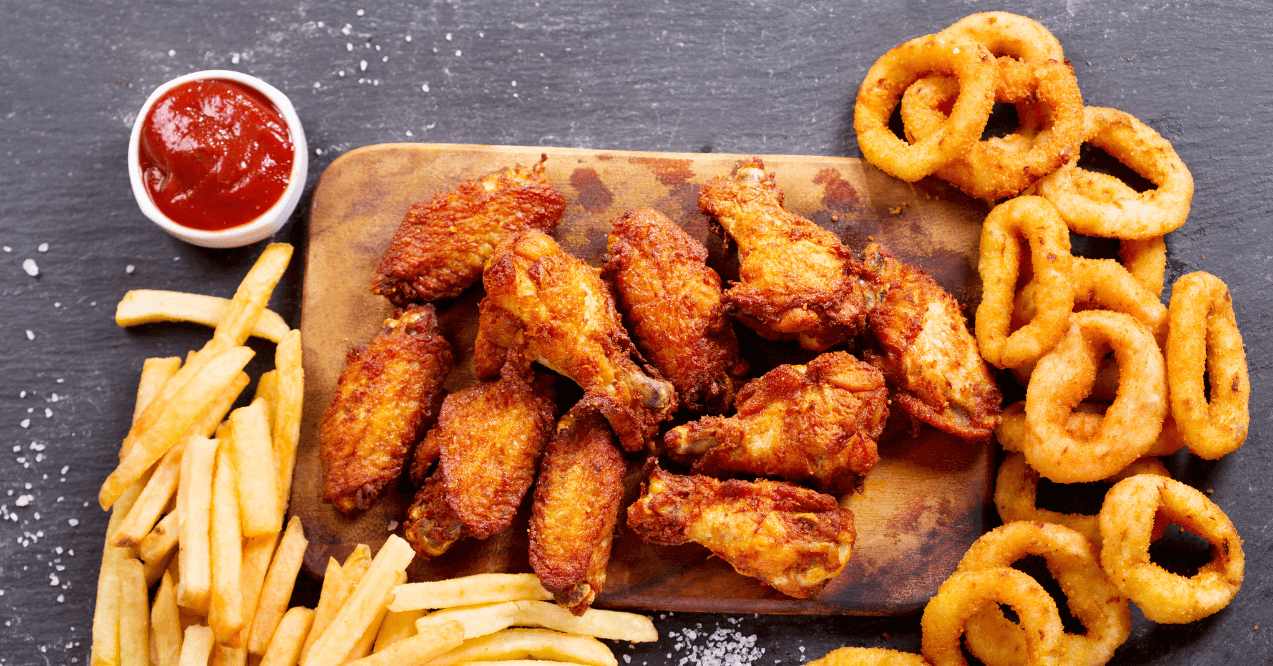

The foods we eat play a major role in overall health, including brain function and memory. Some foods support cognitive health, while others may contribute to memory decline and brain fog. Processed ingredients, unhealthy fats, and high sugar levels may interfere with brain function, potentially increasing the risk of cognitive issues over time.
So, what are the 5 worst foods for memory? Research suggests that certain dietary choices may negatively impact the brain by causing inflammatory processes and disrupting neurotransmitter activity.
How Diet Affects Memory & Brain Health
Daily nutrition choices directly affect how well our brain works. Foods bad for brain function can make it harder to focus during morning activities, recall names at social gatherings, or maintain attention while reading. These effects become more noticeable after age 60, when our brain needs more specific nutrients to stay sharp.
Our brain cells need specific nutrients to work properly:
- Omega-3 fats from fish help brain cells send signals to each other
- Zinc and iron supporting mental clarity
- B-vitamins help create neurotransmitters that affect mood and memory
- Healthy fats maintain the coating around brain cell connections
When we make beneficial food choices, we support our brain’s natural capacity to maintain strong neural connections. For example, incorporating a 7-day liver cleanse diet can also help promote brain health by supporting detoxification pathways, which is crucial for maintaining cognitive function. Moreover, since the lymphatic system plays a key role in clearing waste from the brain, avoiding the worst foods for your lymphatic system may also support better memory and cognitive function over time.
What Are the 5 Worst Foods for Memory?
The 5 worst foods for memory are consistently linked to reduced brain function include fried foods, sugary items, refined carbohydrates, excessive alcohol, and foods containing artificial trans fats. Many people consume these daily without realizing their potential effects on mental clarity and memory.
1. Fried Foods

Fried foods contain compounds that may interfere with brain cell communication. Regular consumption of fried items, especially those from restaurants or packaged sources, introduces substances that can accumulate in brain tissue over time. French fries, fried chicken, and similar foods often contain both unhealthy fats and high sodium levels.
2. High-Sugar Foods & Drinks
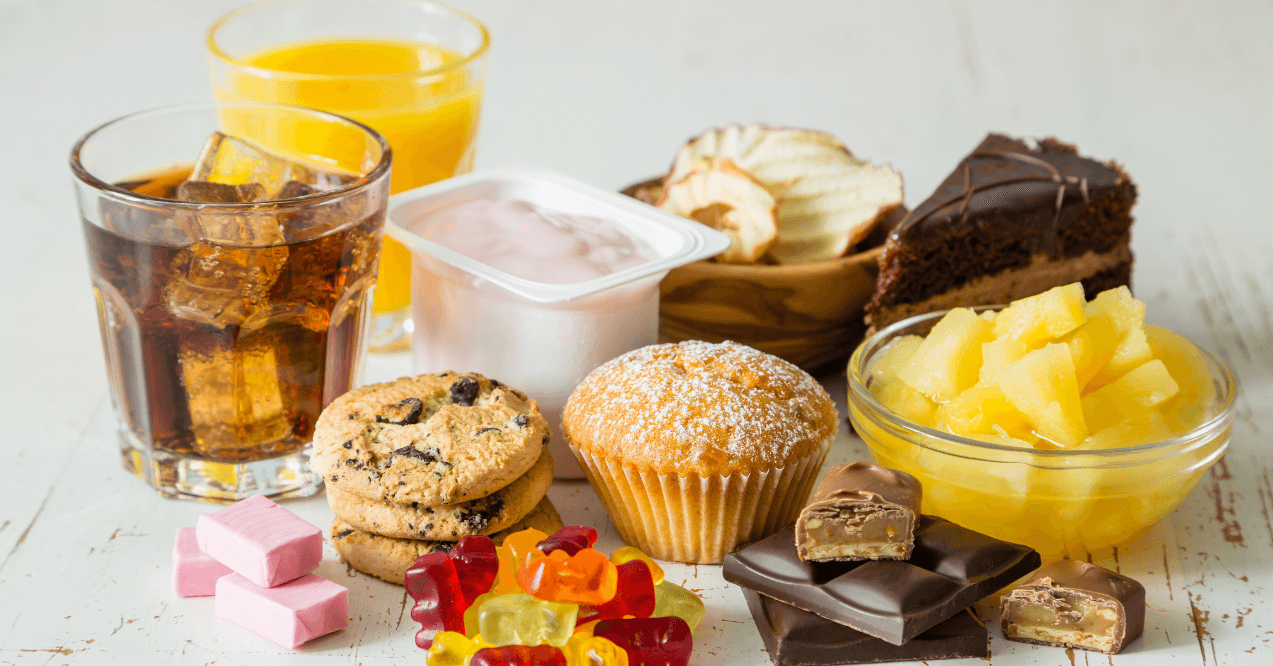
What drinks help with memory loss often comes up in discussions about brain health, but equally important is knowing which beverages to limit. Sodas, energy drinks, and sweetened teas can contain up to 10 teaspoons of sugar per serving. This sugar spike can make it harder for brain cells to communicate effectively.
3. Processed & Refined Carbohydrates
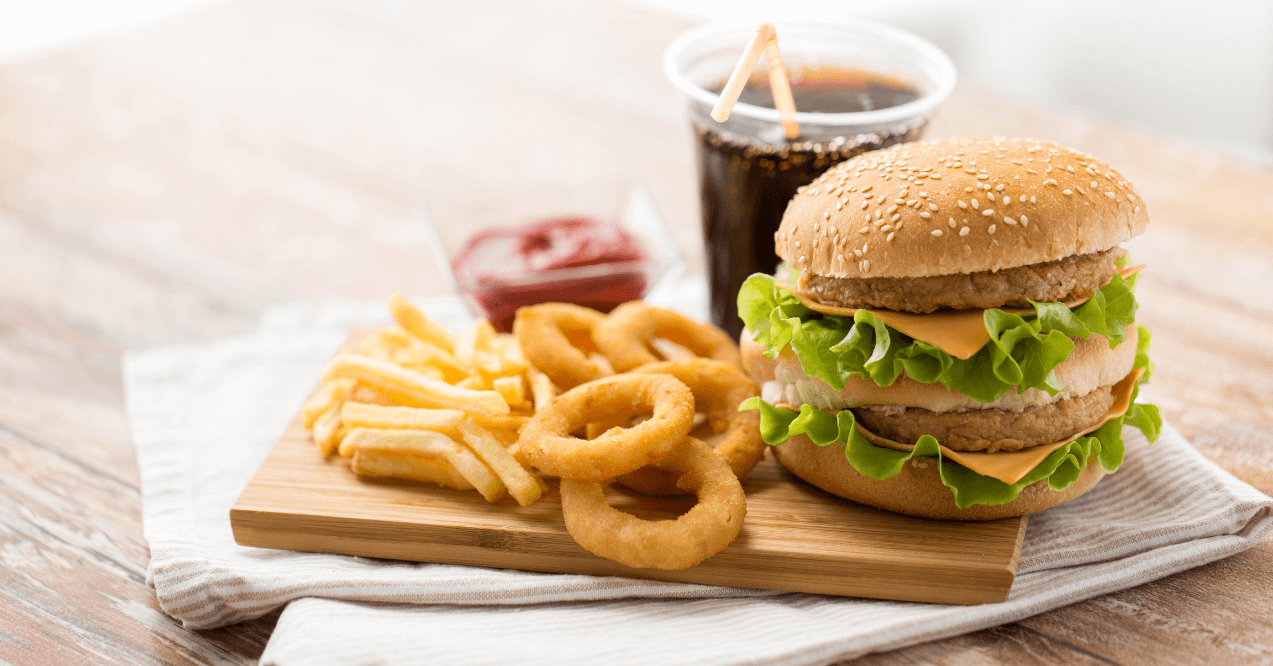
White bread, pasta, and pastries might seem harmless, but they act similarly to pure sugar in our bodies. These foods can cause rapid changes in blood sugar levels, which may affect concentration and mental clarity. The brain requires steady energy throughout the day, and these quick-digesting carbohydrates create unhelpful energy fluctuations.
4. Alcohol

While occasional social drinking might fit into a balanced lifestyle, regular alcohol consumption can impact brain function. More than 1-2 drinks daily may interfere with the brain’s natural maintenance processes. Alcohol might affect how well we form new memories and maintain focus during daily activities. Additionally, alcohol’s dehydrating effects may contribute to feelings of mental fatigue or confusion, leading some to wonder: can dehydration cause brain fog? Staying properly hydrated is essential for supporting mental clarity and overall cognitive performance.
5. Artificial Trans Fats & Margarine
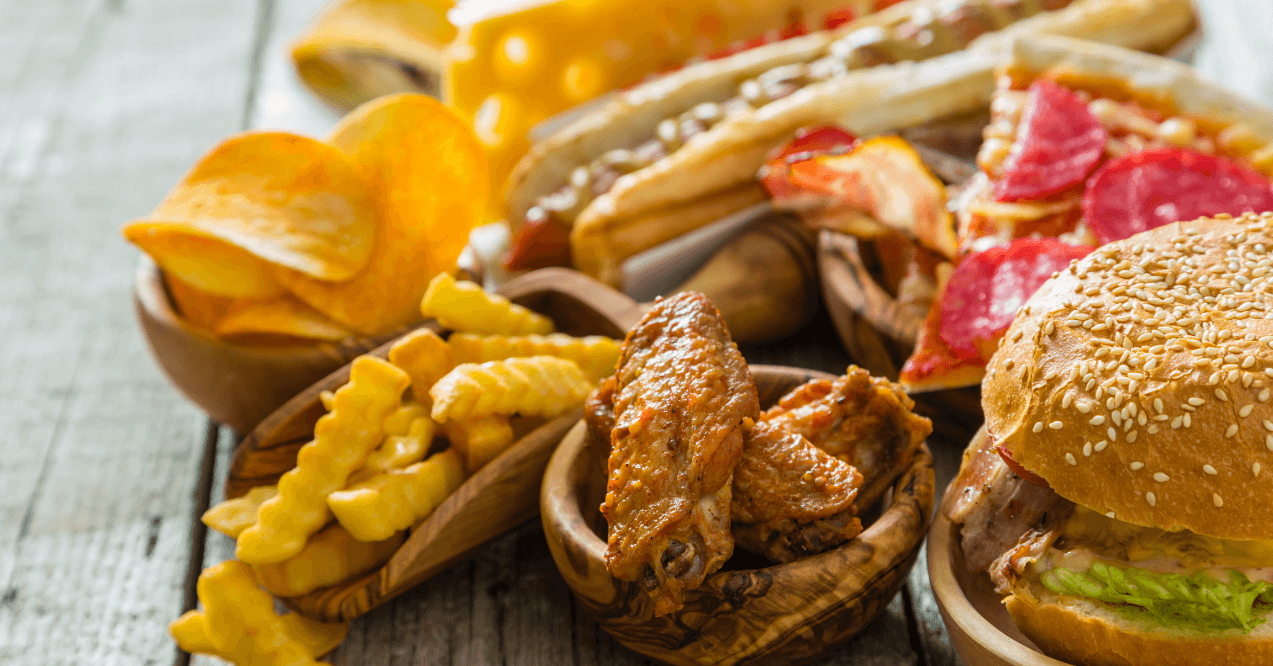
Artificial trans fats appear in many common foods and represent one of the most concerning ingredients for brain function. These manufactured fats, created through industrial processing, can be found in numerous everyday items – often in places you might not expect:
- Most commonly found in commercial baked goods, stick margarine, and frozen convenience foods with long shelf lives
- Look for “partially hydrogenated oils” on ingredient lists and check nutrition labels, as products labeled “0g trans fat” may still contain small amounts
- Choose natural alternatives like olive oil for cooking, soft spreads instead of stick margarine, and homemade versions of snack foods
Many food manufacturers have reduced or eliminated trans fats in their products. However, these fats still exist in the food supply, particularly in processed and packaged foods with long shelf lives. When grocery shopping, take time to compare products and choose options with cleaner ingredient lists.
Foods That May Help Boost Memory

After identifying what foods kill brain cells, it’s also important to focus on beneficial alternatives. Certain foods contain nutrients that support brain function and can help maintain mental clarity. These foods work best when incorporated regularly into daily meals and snacks.
Fruits & Vegetables
Colorful fruits and vegetables contain compounds called flavonoids and antioxidants that support normal circulation to the brain. These nutrients appear most concentrated in:
- Dark berries (blueberries, blackberries)
- Leafy greens (spinach, kale)
- Bright vegetables (sweet peppers, carrots)
- Citrus fruits (oranges, grapefruits)
Adding one serving of berries and two servings of leafy greens to your daily meals provides these beneficial compounds.
Fatty Fish (Omega-3s)
Cold-water fish provide DHA, a type of fat that makes up 25% of your brain’s fat content. Good options include:
- Salmon
- Sardines
- Trout
- Mackerel
Including fish 2-3 times weekly provides these essential fats that your body cannot produce on its own.
Whole Grains & Healthy Carbs
Whole grains contain B-vitamins and fiber that regulate glucose release into the bloodstream, unlike refined carbohydrates. Good choices include:
- Oats
- Quinoa
- Brown rice
- Whole grain bread
- Barley
This steady energy supply helps maintain consistent mental clarity throughout the day.
Healthy Fats (Nuts, Olive Oil, Avocados)
These foods provide nutrients that support the protective coating around brain cells:
- Walnuts and almonds
- Extra virgin olive oil
- Fresh avocados
- Chia and flax seeds
Adding a small handful of nuts or seeds daily, along with 1-2 tablespoons of olive oil, helps incorporate these beneficial fats into your diet.
While a balanced diet forms the foundation of cognitive wellness, many adults choose to add supplementary nutrition. CogniCharge by Nature’s Blast offers a convenient powder-based formula containing vital nutrients like B-vitamins, Bacopa, and Phosphatidylserine. This carefully crafted blend includes L-Theanine, GABA, and other natural compounds that work together to support mental clarity. The powder format allows for easy incorporation into your daily routine, whether mixed with water or added to your morning beverage.
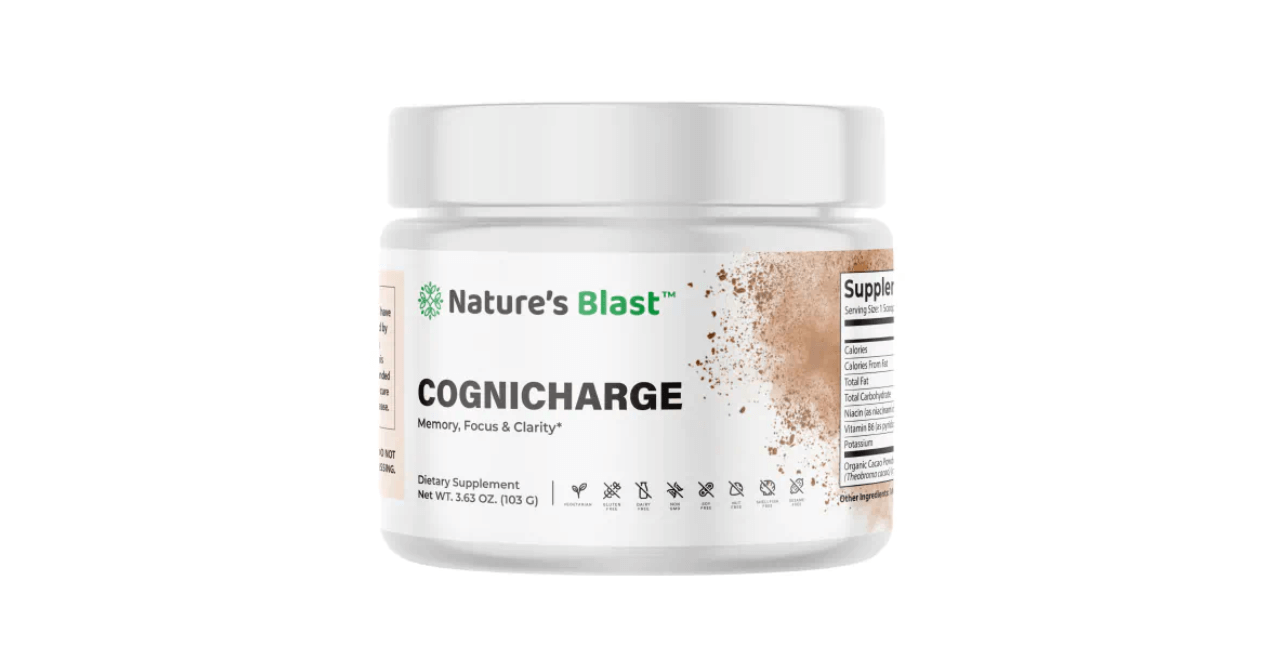
Lifestyle Tips to Protect Memory & Brain Health

The foods we eat work together with our daily habits to influence brain function. Simple lifestyle adjustments, combined with mindful eating, might also create positive effects on mental clarity and cognitive abilities.
Exercise & Physical Activity
Regular movement supports brain health in several ways. Even light physical activity like walking or gardening increases circulation throughout the body, including the brain. Aim for activities you enjoy:
- Daily walks in your neighborhood
- Light swimming or water exercises
- Gentle stretching routines
- Working in the garden
- Simple chair exercises
- Dancing to favorite music
Try to include 30 minutes of movement most days of the week, breaking it into smaller 10-minute sessions if needed.
Mental Stimulation & Learning
Engaging in mentally stimulating activities helps maintain cognitive function. Mix up your routine with various activities:
- Solo activities – crosswords, puzzles, learning musical instruments
- Social learning – card games, community classes, group discussions
- Creative pursuits – new recipes, crafts, artistic hobbies
Aim to include at least one of these activities daily – they work best when combined with social interaction and gradual increases in difficulty.
Sleep & Stress Management
Quality rest and balanced stress levels play key roles in maintaining brain function. Focus on creating routines that support good sleep:
- Evening preparation – limit screens, gentle stretches, soft music
- Sleep environment – quiet room, comfortable bedding, cool temperature
- Time consistency – fixed bedtime, regular wake-up schedule
Most adults benefit from 7-8 hours of quality sleep each night in a cool, dark room.
For stress management, start with physical practices such as deep breathing, walking in nature, or gentle movement. Social connections also play a vital role – spending time with friends, joining group activities, and sharing experiences with others. Throughout your day, create moments of balance by taking regular breaks, finding quiet moments, and engaging in mindful activities.
Including 2-3 of these stress management practices in your daily routine helps create a more balanced and supportive environment for brain health.
Conclusion
So, what are the 5 worst foods for memory? Fried items, sugary foods and drinks, refined carbohydrates, excessive alcohol, and artificial trans fats. Awareness of these foods allows us to make informed choices about our daily nutrition.
The path to better cognitive health involves both reducing problematic foods and adding beneficial ones. Fruits, vegetables, fatty fish, and whole grains provide nutrients that support brain function. These dietary choices work best when paired with regular physical activity, quality sleep, and mentally engaging activities.
Green tea, coffee in moderation, and water support brain function. Berry smoothies with leafy greens provide beneficial compounds. Vegetable juices with beets and dark leafy greens maintain healthy blood flow to the brain.
Excessive alcohol disrupts brain cell communication. Ultra-processed foods with artificial additives affect cellular health. Foods with high mercury content like certain fish species impact neural function. High-sugar items create cellular stress.
Refined carbohydrates might cause rapid sugar level changes affecting mental clarity. Processed foods high in sodium potentially affect circulation. Foods with artificial preservatives might impact focus and concentration.
FAQ
References

